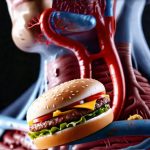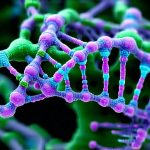The digestive system is often viewed as merely a processing plant for food, but it’s far more complex – a dynamic ecosystem where countless biochemical reactions occur simultaneously. A crucial aspect of overall health frequently overlooked is bowel transit time, the duration it takes for food to move through the digestive tract. This isn’t just about regularity; it profoundly impacts nutrient absorption, immune function, and even mental wellbeing. When transit time is too fast or too slow, imbalances can develop, leading to discomfort and potentially more serious health issues. Optimizing bowel transit relies on a harmonious interplay of factors, including diet, hydration, physical activity, and – importantly – the enzymatic processes that underpin digestion.
Enzymes are biological catalysts, proteins that accelerate chemical reactions within the body without being consumed in the process themselves. They’re essential for breaking down food into absorbable components, but their role extends beyond simple disassembly. Different enzymes target specific macronutrients—carbohydrates, proteins, and fats—and even complex sugars like lactose. A deficiency or imbalance in these digestive enzymes can directly affect how efficiently we extract nutrients from our food, altering bowel transit time and contributing to a range of digestive symptoms. Understanding the precise mechanisms by which enzymes influence this process is key to supporting gut health and overall vitality.
The Enzymatic Breakdown of Food & Transit Time
The journey of food through the digestive system isn’t passive; it’s an active dismantling process driven largely by enzymatic activity. It begins in the mouth with amylase, found in saliva, initiating carbohydrate breakdown. As food moves to the stomach, pepsin, activated by hydrochloric acid, starts protein digestion. But the bulk of enzymatic action happens in the small intestine, where enzymes secreted by the pancreas and the intestinal lining take center stage. These include pancreatic amylase (further carbohydrate digestion), protease (protein breakdown – trypsin, chymotrypsin, carboxypeptidase), and lipase (fat digestion). Efficient breakdown is crucial for optimal transit time. If food isn’t properly broken down, it lingers longer in the digestive tract, potentially leading to fermentation by gut bacteria.
This fermentation can create gas and bloating, slowing down motility – the movement of food through the intestines. Conversely, if digestion happens too quickly due to excessive enzyme activity or a lack of fiber, nutrients may not be fully absorbed before reaching the large intestine, resulting in diarrhea or loose stools. The ideal scenario is a balanced enzymatic process that efficiently breaks down food for absorption, allowing for consistent and healthy bowel movements. This balance isn’t static; it adapts based on dietary intake and individual needs.
Consider lactose intolerance as an example. Individuals lacking sufficient lactase – the enzyme responsible for breaking down lactose (milk sugar) – experience digestive discomfort when consuming dairy products. Undigested lactose ferments in the colon, leading to gas, bloating, and altered transit time. Similarly, deficiencies in other enzymes can lead to similar disruptions, highlighting the direct link between enzymatic function and bowel regularity.
Enzyme Deficiencies & Their Impact
Enzyme deficiencies aren’t always genetic; they can also develop due to factors like aging, chronic stress, or poor diet. As we age, our bodies naturally produce less of certain enzymes. Chronic stress can impair digestive enzyme production and secretion. And a diet lacking in essential nutrients may hinder the synthesis of these vital proteins. Identifying potential deficiencies is often complex, as symptoms can be vague and overlap with other conditions.
- Common signs suggesting an enzymatic insufficiency include: bloating, gas, abdominal discomfort, diarrhea, constipation, undigested food in stool, and nutrient malabsorption (leading to fatigue or weakened immunity).
- It’s important to note that these symptoms are not exclusive to enzyme deficiencies and require professional evaluation.
One approach to assess potential issues is through dietary elimination trials – temporarily removing suspected problematic foods (like dairy for lactase deficiency) to observe symptom changes. However, self-diagnosis can be misleading; a healthcare professional can perform specific tests to evaluate digestive function and identify any underlying enzymatic imbalances. Addressing these deficiencies often involves dietary modifications and, in some cases, supplemental enzymes.
The Role of Pancreatic Enzymes
The pancreas is the powerhouse of digestive enzyme production. It synthesizes and releases amylase, protease (trypsin, chymotrypsin), lipase, and other crucial enzymes into the small intestine via the pancreatic duct. These enzymes are released in response to signals from hormones like secretin and cholecystokinin, triggered by the presence of food in the duodenum (the first part of the small intestine). Impaired pancreatic function, due to conditions like pancreatitis or cystic fibrosis, can severely compromise enzymatic digestion and dramatically alter bowel transit time.
Pancreatic enzyme replacement therapy (PERT) is a common treatment for individuals with exocrine pancreatic insufficiency, where the pancreas doesn’t produce enough digestive enzymes. PERT involves taking supplemental enzymes—typically derived from porcine (pig) sources—with meals to aid in food breakdown. While effective for managing symptoms, it’s not a cure-all and requires careful monitoring by a healthcare professional. The goal of PERT is to restore enzymatic function and improve nutrient absorption.
Supporting Natural Enzyme Production
Rather than relying solely on supplements, prioritizing strategies that support the body’s natural enzyme production is ideal. Dietary choices play a significant role. Consuming enzyme-rich foods – such as pineapple (bromelain), papaya (papain), mangoes, kiwi, and fermented foods like yogurt and kefir—can provide a boost to digestive processes. However, these enzymes are often partially destroyed during digestion themselves; their primary benefit lies in reducing the workload on the pancreas.
- A diet rich in protein helps ensure adequate enzyme synthesis.
- Including sufficient micronutrients – vitamins and minerals – is also crucial for enzymatic function. Deficiencies in zinc, vitamin B6, and magnesium can all impact enzyme production.
- Reducing stress levels through practices like meditation, yoga, or deep breathing exercises can help optimize digestive enzyme secretion.
Finally, chewing food thoroughly increases surface area for enzymatic action and reduces the burden on subsequent stages of digestion. This simple habit can have a surprisingly significant impact on bowel transit time and overall gut health.
Fiber’s Influence & Enzymatic Synergy
Fiber isn’t digested by human enzymes; instead, it plays a critical role in regulating bowel transit time and supporting a healthy gut microbiome. However, the interaction between fiber and digestive enzymes is more nuanced than often perceived. Certain types of fiber—soluble fiber found in oats, beans, and apples—can actually be fermented by bacteria in the colon, producing short-chain fatty acids (SCFAs). SCFAs have numerous health benefits, including improving gut motility and supporting immune function.
This bacterial fermentation is indirectly influenced by enzymatic digestion. If food isn’t properly broken down upstream, more undigested material reaches the colon, providing a greater substrate for bacterial fermentation, potentially leading to excessive gas production. Conversely, efficient enzymatic breakdown reduces the amount of undigested matter reaching the colon, minimizing fermentation and promoting smoother transit. The relationship is symbiotic – enzymes prepare the food for bacterial action, and bacteria contribute to overall gut health.
The type of fiber consumed also matters. Insoluble fiber, found in wheat bran and vegetables, adds bulk to stool and accelerates transit time, helping prevent constipation. However, excessive insoluble fiber without adequate hydration can actually exacerbate constipation. A balanced intake of both soluble and insoluble fiber is essential for optimal bowel function. This balance, combined with efficient enzymatic digestion, creates a harmonious environment within the digestive system.


















